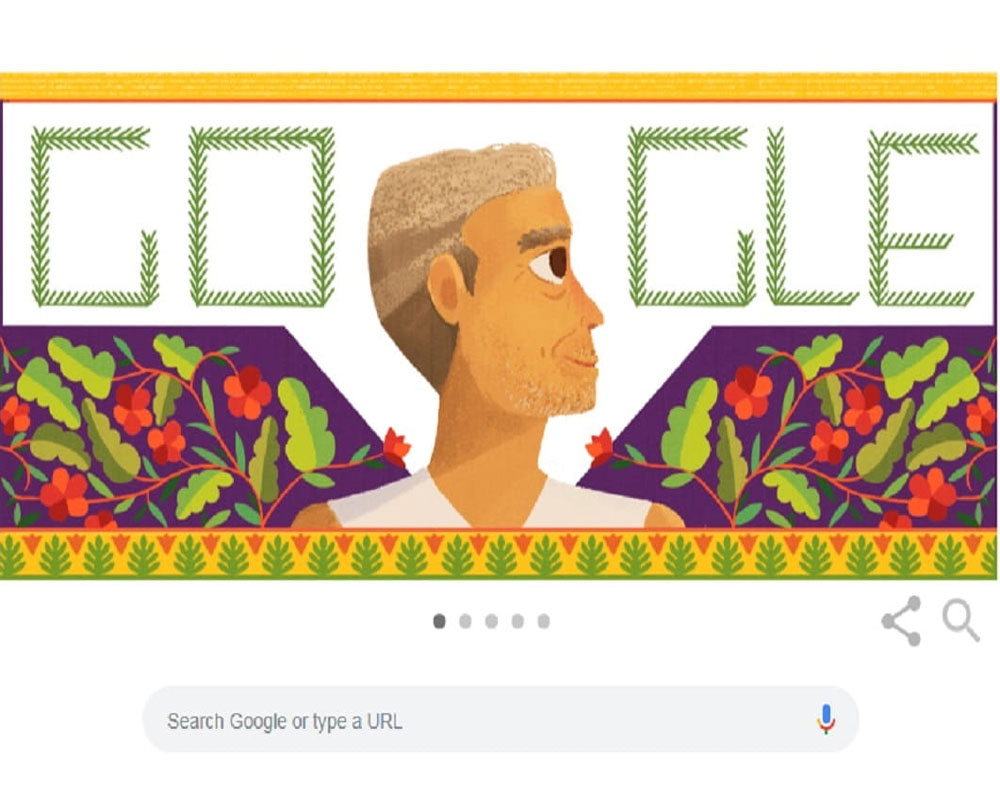NEW DELHI, Dec 26:
Search engine giant Google on Wednesday paid homage to Indian social worker and activist Murlidhar Devidas Amte, affectionately known as Baba Amte, with a colourful doodle on his 104th birth anniversary.
The slide show traces the life and legacy of Amte, who dedicated his life to serving those in need, especially those afflicted with leprosy.
Exposed on to a life of privilege, Amte, born in Maharashtra in 1914, would hunt wild animals, play sports, and drive luxurious cars. Aware of the class inequalities prevalent in the country at the time, Amte, as a child, would consciously play with the ‘lower caste’ servants’ children.
He went on to study law and was running his own successful firm by his 20s. He left his practice in about a decade’s time to work for the upliftment of the underprivileged.
According to Google, the incident that went on to define remainder of Amte’s life was an encounter with a man suffering from leprosy.
“The sight of the man’s decaying body filled him with overwhelming fear,” read the blog post.
Confronting that fear, Amte identified the state of “mental leprosy” that allowed people to feel apathetic in the face of this dreaded affliction.
“The most frightening disease is not losing one’s limbs, but losing one’s strength to feel kindness and compassion,” Amte had said.
In his attempt to challenge the social stigma faced by leprosy patients and make people believe that the disease was not “highly contagious”, he injected himself with bacilli, a disease causing bacteria.
A Gandhian for most part of his life, Amte was married to Indu Ghuleshastri (later called Sadhanatai Amte). Like her husband, she too dedicated her life to social work.
Their two sons, Vikas Amte and Prakash Amte, and daughters-in-law, Mandakini and Bharati, are doctors.
He founded three ashrams for treatment and rehabilitation of leprosy patients, disabled people and people from marginalised sections of the society in Maharashtra.
In 1949 he established Anandwan – meaning “Forest of Bliss” — a self-sufficient village and rehabilitation center for leprosy patients.
Always a strong believer in national unity, Amte launched the first Knit India March in 1985. At 72, he walked from Kanyakumari to Kashmir, a distance of more than 3,000 miles with the purpose to inspire unity in India.
His second march was three years later, where he travelled over 1800 miles from Assam to Gujarat.
He received several awards during his lifetime including the Padma Shri, the United Nations Prize in the Field of Human Rights, and the Gandhi Peace Prize. (PTI)


